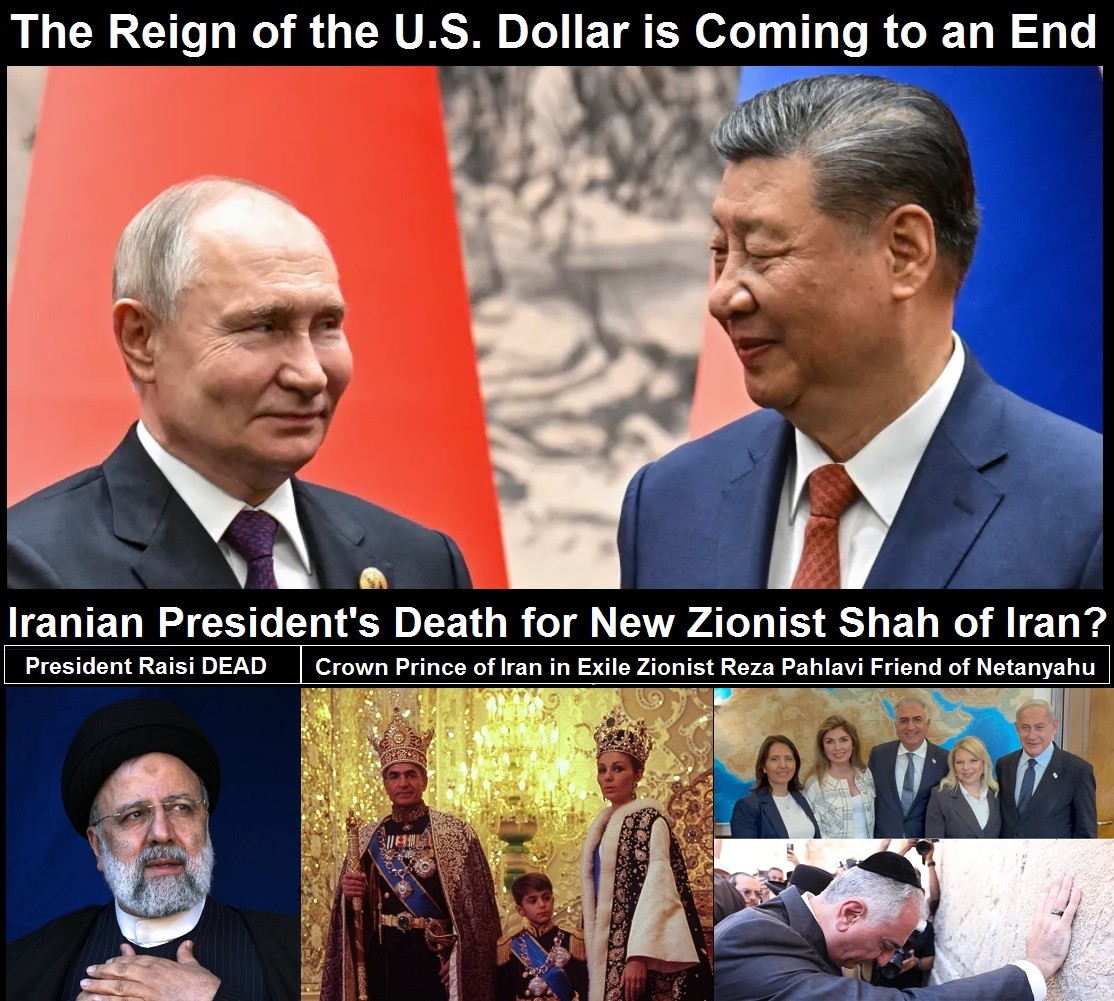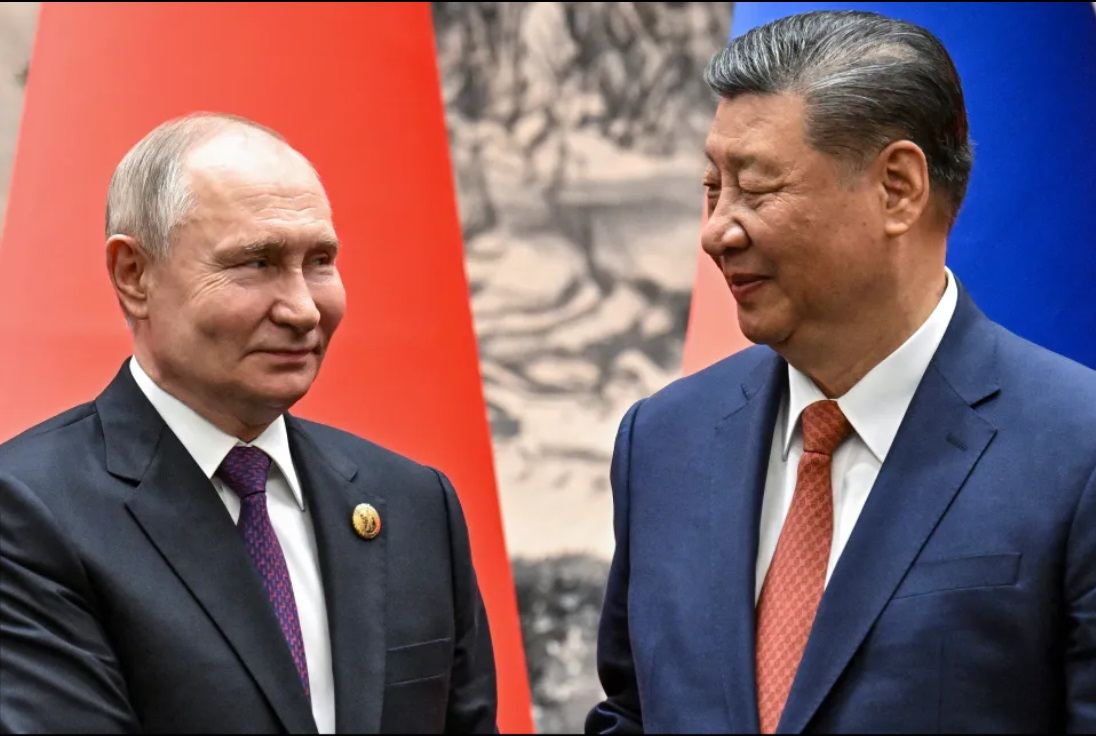by Brian Shilhavy, Health Impact News:

In an event that was barely covered in the western media last week, Russian President Vladimir Putin made a 2-day visit to China to meet with his counterpart, Chinese President Xi Jinping.
A lot of the western media coverage seemed to be infatuated with the fact that the two of them hugged each other in public, which was allegedly unprecedented, and that spawned dozens of articles of corporate media conspiracy theories about what it was that made them so happy with each other.
But details of the meeting are now beginning to emerge, especially as some sources have begun translating Russian and Chinese versions of descriptions of what happened during the meetings into English.
TRUTH LIVES on at https://sgtreport.tv/
And if these English reports are accurate, it is no wonder as to why the two were so happy, as it appears that the U.S. Dollar’s supremacy as the world’s reserve currency is on the way out as the rest of the non-western world is rapidly abandoning the U.S. Dollar, which spells doom for the United States, and the ultimate end of the U.S. Empire as the world’s most powerful nation.
And now add to that the news of the suspicious death of Iran’s President that happened this weekend after I started to write this article, and perhaps we now can see clearer into the future to understand what is about to happen next.
It’s not a pretty picture, at least not for Americans.
Putin’s Visit to China

Eric Peters, CIO of One River Asset Management, wrote the following today on an article published on ZeroHedge News:
The Chinese/Russian joint statement reads like a playbook for how to create a fully independent political and economic zone.
- For Industry – develop civil aircraft construction, shipbuilding, carmakers, machine tool industry, electronics industry, metallurgy, iron ore mining, chemical industry, and forestry.
- For Agriculture – expand mutual access of agricultural products, increase the volume of trade in soybeans, pig breeding, water production, grain, fat and oil, fruits and vegetables, nuts, and other products.
- For Energy – strive for the stability and sustainability of the global energy market, strengthening value chains in the fuel and energy complex. Develop market-based cooperation in the field of oil, natural gas, LNG, coal, and electricity, ensure the stable operation of relevant cross-border infrastructure and the creation conditions for unimpeded transportation of energy resources.
- For Nuclear Energy – deepen partnership in peaceful nuclear energy. Including thermonuclear fusion, fast neutron reactors and the closed nuclear fuel cycle.
- For Taiwan – Russia reaffirms its commitment to the principle of ‘One China’, recognizes that Taiwan is an integral part of China, opposes the independence of Taiwan in any form, and firmly supports the actions of the Chinese side to protect its own sovereignty and territorial integrity, as well as to unify the country.
- For Ukraine – The Russian side positively assesses China’s objective and unbiased position on the Ukrainian issue. China supports the efforts of the Russian side to ensure security and stability, national development and prosperity, sovereignty, and territorial integrity, and opposes outside interference in Russia’s internal affairs.
- For Technology – develop cooperation in information and communication technologies, including artificial intelligence, communications, software, Internet of things, open source, network and data security, video games, radio frequency coordination, specialized education, and industry research activity.
- For Markets – increase the share of national currencies in bilateral trade; encourage debt issuance in both markets; develop insurance and financial markets. This process is clearly already underway. And so is their retreat from US markets.
Disentanglement:
The West froze over $300bln of Russian reserves following the Ukraine invasion.
Moscow will not be buying our bonds again.
China has been reducing its US Treasury and agency bond holdings since 2022.
It sold another $53.3bln worth in Q1.
Holdings are down to $767bln, a level last seen in 2009.
Indeed, ever since the U.S. cut Russia out of the western-backed SWIFT banking system after the war in Ukraine broke out, and then seized their U.S. dollar assets more recently, what did they think the rest of the world would do?
Non-western countries in the rest of the world are rushing as fast as they can to reduce and eliminate their dependency on the U.S. dollar.
And this has not happened in a reactionary way that has surprised the Globalists in the U.S., of whom some foreign powers are now referring to as “America’s Oligarchs“, as at least one American economist who has worked for Joe Biden since his days as vice-President under Obama has been predicting this flight from the dollar for years, and trying to spin it in a positive direction.
Putting More Pressure On The Dollar
Over the weekend, the U.S. State Department posted about seizing Russia’s sovereign assets in the U.S. and encouraging other G-7 members to do the same.
The downsides of the United States doing this when it has persistently large fiscal and trade deficits would seem obvious, but apparently they’re not.
Other countries that aren’t allied/subservient to the U.S. will be less comfortable holding U.S. dollar assets, out of fear that their assets might be summarily seized as well at some point.
In fact, that already seems to be happening, as China just sold a record amount of U.S. Treasury bonds.
Read More @ HealthImpactNews.com





